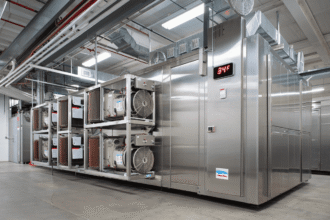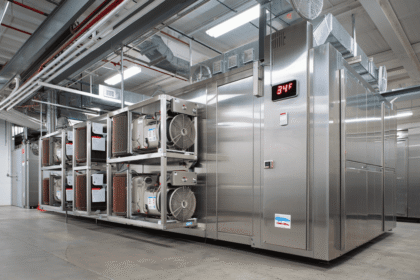Has trying to track your inventory got you stressed out? It can be tough to keep track of your inventory, especially if you’re using a manual system.
A periodic inventory system is a manual system where you take stock of your inventory only once or twice a year. This can lead to inaccuracies and missed opportunities to sell products.
A perpetual inventory system updates your inventory automatically. This way, you always know how much product you have on hand. You will make fewer mistakes and have more accurate records.
So, what is the difference between a periodic inventory system vs perpetual inventory system?
Read on to find out which system is best for you and your business.
What Is a Periodic Inventory System?
A periodic inventory system is a traditional method of tracking and managing inventory levels. It requires taking a physical count of all the items in stock at specific intervals, such as monthly or quarterly.
This periodic inventory guide and this method may take more time and effort than other methods. These periodic inventory tips will help, but you may need to use more resources.

What Is a Perpetual Inventory System?
This perpetual inventory guide will show that a perpetual inventory system is a more modern method of tracking and managing inventory. The system uses barcodes or other technology to track items.
This way, business owners always know how many they have of each item. This helps them to keep the right amount in stock and not run out or have too much. The Differences Between Periodic and Perpetual Inventory Systems.
Now that we’ve discussed the two types of inventory systems, let’s dive into the differences between them. They include:
1. Amount of Effort
When it comes to effort, the perpetual inventory system requires much less than the periodic system. That’s because much of the work is done automatically with technology and does not require manual counting or tracking of each item in stock.
2. Accuracy
The accuracy of a perpetual inventory system is far greater than that of a periodic system. This is due to the constant data collection and updating of stock levels.
3. Timeliness
The timeliness of updates is also much better with a perpetual system than with a periodic one. With a perpetual system, updates are made in real-time and can provide business owners with an up-to-date view of their inventory at any time.
4. Cost
The cost of a perpetual inventory system is usually higher than the cost of a periodic system. This is due to the need for technology and extra resources.
5. Scalability
A perpetual inventory system can easily be scaled up or down depending on the needs of a business. This makes it attractive for small and large businesses alike.
6. Flexibility
Finally, a perpetual inventory system is more flexible than a periodic system. Business owners can quickly adapt to changing needs and adjust stock levels accordingly.
There are two types of inventory systems. Business owners decide which one is best for their company. They need to think about what is good and bad about each type before they decide.
Benefits of a Periodic Inventory System
Now that you know the differences between periodic and perpetual inventory systems, it is important to consider the benefits of each. They include:
1. Low Cost
A periodic inventory system can be a great choice for businesses that are short on time and capital to invest in such a large-scale endeavor. Compared to perpetual systems, which require heavier spending.
This encourages businesses of all sizes to consider adopting it, enabling them to better manage their stock without breaking the bank.
With its relatively low cost, no question that incorporating a periodic inventory system into any business’s operations is an effective and affordable way to track stock levels throughout the entire year.
2. Flexibility
A periodic inventory system offers businesses a lot of flexibility in how counts are taken. With this method, counts are only conducted at specific intervals rather than continuously throughout the day, week, or month.

This gives businesses much more control to plan and organize their counts around busy times and special events so that it won’t disrupt their normal operations.
This can help businesses save time and money while still efficiently managing their inventory.
3. Less Technical Knowledge Needed
A periodic inventory system is an ideal option for businesses that want to manage their inventory but lack the technical knowledge or expertise to maintain a perpetual system.
There are fewer steps and complexity involved with a periodic system, allowing operations to be managed simply and efficiently. Furthermore, the data produced is available quickly and provides reliable information to the business.
This allows companies without a wealth of experience in the field to make informed decisions based on accurate inventory figures.
With less technical know-how needed, businesses can benefit from using a periodic inventory system with relative ease compared to alternative methods.
4. Less Risk of Human Error
Manual physical counting of inventory can be a painstaking process. However, it comes with the security of knowing that less risk of human error is involved than when using a perpetual inventory system.
By regularly assessing their stock, companies can ensure that their records are properly kept and that their stocks are always accurately accounted for.
This helps to safeguard from unexpected discrepancies or costly miscalculations.
All in all, the periodic inventory system is an advantageous way for companies to have better control over not only their inventory but also their finances.
Benefits of a Perpetual Inventory System
Now that you know the differences between periodic and perpetual inventory systems, let’s look at the benefits of a perpetual system. These include:
1. Accurate Stock Levels
In contrast to the traditional periodic inventory systems, perpetual inventory systems provide businesses with an accurate and updated snapshot of their stock levels.
By continuously tracking every item that enters or leaves the premises, this system helps businesses better understand their inventory needs and keep on top of sales, purchases, and deliveries.
An added benefit of such tracking technology is the ability to identify areas where losses due to theft or mishandling can be eliminated and processes can be improved.
Overall, it is a reliable system that allows business owners to make quick decisions based on the most current information available.
2. More Efficient Ordering
Having insight into the exact stock levels of a company’s products or materials is essential to avoiding overstocking or shortages when ordering new supplies. This is where a perpetual inventory system can be immensely beneficial.
It allows companies to maintain an accurate understanding of what they have in stock, making it easier to determine how much they need to order at any given time.

Not only does this save money and ensure that inventory levels are kept steady, but it also saves resources and time spent monitoring stock by giving real-time updates on inventories.
With this system, businesses can accurately plan their ordering needs with greater precision and make sure that their customers’ orders can be reliably fulfilled.
3. Increased Visibility
Business owners who use a perpetual inventory system have the advantage of increased visibility toward their stock. The system allows them to track their inventory in real-time.
This enables them to spot any inconsistencies between sales and ordering patterns.
This means that businesses can be proactive rather than reactive when it comes to managing their stock levels, and avoiding unnecessary shortages or overstocking.
With a perpetual inventory system, business owners can maintain full control of their operations while they’re on top of what’s happening with both incoming and outgoing items.
4. Easy Tracking of Inventory Movements
A perpetual inventory system allows for much easier tracking of inventory movements, from the warehouse to a store location, and even directly to the customer.
All movements can be easily logged and monitored within the perpetual system. This is in stark contrast to periodic accounting, which requires manual entry of transactions but offers no active tracking.
Businesses that recognize the importance and power of an effective inventory tracking process will find tremendous value in a perpetual system.
They gain real-time insights into exactly where and when each item moves – with increased accuracy and greater efficiency.
5. Greater Planning Capabilities
With the visibility and accuracy offered by a perpetual system, companies can plan for future stock needs much more effectively.
In conclusion, both periodic and perpetual inventory systems have their benefits and drawbacks. Companies should carefully consider their needs before deciding which type of system is best for them.
A combination of the two systems may be necessary in some cases as well.
So What Does This Mean for You?
Well, to conclude, each inventory system offers its advantages when used correctly. With accurate knowledge of the differences between Periodic vs Perpetual Inventory Systems, businesses can make an informed decision.
They can decide on the best inventory tracking app for their needs and optimize operations for improved efficiency.

It is important to weigh the pros and cons of each system against its unique business requirements to determine what works best for them.
By understanding both periodic and perpetual systems, businesses can develop a custom inventory solution that meets their specific needs – helping them achieve success on all levels.
Periodic Inventory System vs Perpetual Inventory System?
So when comparing a periodic inventory system vs perpetual inventory system, which is right for you? There are pros and cons to both the periodic inventory system and the perpetual inventory system.
Ultimately, it depends on your unique business needs as to which system will work best for you.
If you’re still not sure, or if you have any other questions about inventory management, be sure to check out our blog.








